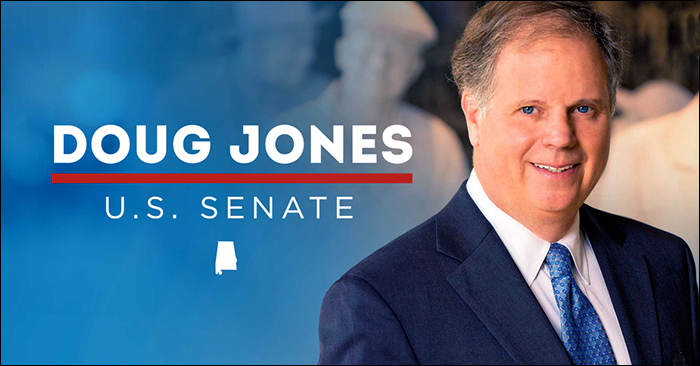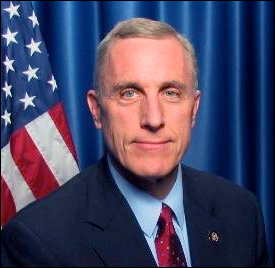By Jim Ellis
Dec. 14, 2017 — With the final polling covering all possibilities — from Democrat Doug Jones leading by 10 points, to Republican Roy Moore ahead by nine, to a straight tie — Tuesday’s Alabama special Senate election carried a great deal of uncertainty as voters cast their ballots.
Republicans were badly split between those party leaders publicly repulsed by the allegations of sexual impropriety against Moore, to those who felt that holding the seat and preventing the Democrats from having any path to obtaining the Senate majority in 2018 was most important.
The split was enough to allow Democrat Jones, a former Birmingham region US Attorney, to slip past Judge Moore and secure what previously had been a safely Republican seat for the next three years. Jones will replace appointed Sen. Luther Strange (R) who fell to Moore in the Republican run-off in late September.
The unofficial final totals give Jones 49.9 percent of the vote as compared to Moore’s 48.4 percent. Election Day’s final turnout figure showed 1,344,406 individuals having cast ballot, a total that will increase when all absentee and provisional ballots are finally added to the mix. In comparison, the last gubernatorial election (2014) drew 1,180,413. The 2016 presidential campaign saw 2,123,372 votes cast. Therefore, this special election, as did others earlier in the cycle (MT-AL; GA-6), actually produced a higher voter turnout than the state’s last regular midterm election.




